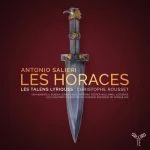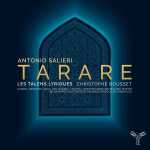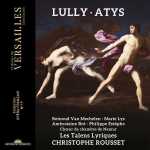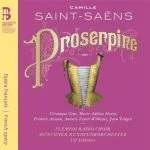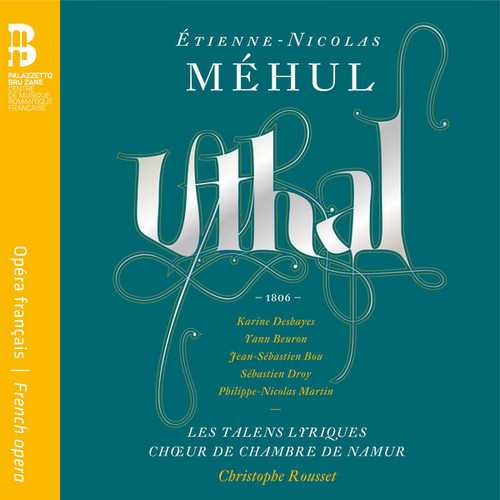

Composer: Étienne Nicholas Méhul
Performer: Chœur de Chambre de Namur, Karine Deshayes, Jean-Sébastien Bou, Jacques-Greg Belobo, Artavazd Sargsyan, Philippe-Nicolas Martin, Reinoud Van Mechelen, Sébastien Droy, Yann Beuron
Orchestra: Les Talens Lyriques
Conductor: Christophe Rousset
Format: FLAC (tracks)
Label: Bru Zane
Catalogue: ES10268RSK
Release: 2017
Size: 581 MB
Recovery: +3%
Scan: yes
Uthal
01. Ouverture
Scène 1
02. Dialogue “Karine Deshayes ! Ma fille !”
03. Air et duo “Ombres de mes aïeux”
04. Dialogue “Ma fille, il n’est pas loin le jour”
05. Morceau d’ensemble “Le grand Fingal, pour punir”
Scène 2
06. Chœur “Nous bravons les tempêtes”
07. Dialogue “Ô combien votre aspect”
08. Morceau d’ensemble “Vers le palais”
Scène 3
09. Récitatif “Quoi ! Ce combat affreux”
10. Hymne au sommeil “Ô de Selma !”
11. Dialogue “Où chercher un appui”
Scène 4
12. Récitatif et romance “Quoi ! Je la cherche en vain !”
Scène 4 & 5
13. Dialogue “Jean-Sébastien Bou !”
Scène 5
14. Duo “Yann Beuron !”
Scène 6
15. Dialogue “En croirai-je mes yeux ?”
Scène 7
16. Morceau d’ensemble “Braves vengeurs”
Scène 8
17. Récitatif “C’en est fait”
18. Chant des Bardes “Près de Balva”
Scène 9
19. Dialogue “Mon père !”
Scène 10
20. Chœur “Réjouis-toi, Morven”
21. Dialogue “Enfin j’ai le pouvoir de venger”
22. Choeur final “Doux moment !”
Prompted by the success of Ossian’s poetry during the First Empire, the Opéra-Comique commissioned from Méhul a short and gripping work inspired by James Macpherson’s Celtic reveries. The composer had the brilliant idea of conjuring up the mists of this Scottish fantasy world in his music by using the ‘grisaille’ sonority of an orchestra without violins. The Gothic coloration of wind instruments with divided violas, the melancholy poetry of the harp and solo horn that frequently emerge from the tutti, contrast with the choruses of warriors and the belligerent strains of Larmor and Uthal. The Hymn to Sleep, an eminently Romantic bardic song, came to be seen as one of Méhul’s finest pieces, and was sung over his grave by the Conservatoire students at his funeral in 1817.
The music of Etienne-Nicolas Méhul has been largely forgotten, but early music conductor Christophe Rousset and his ensemble Les Talens Lyriques seem intent on a revival with this sumptuously presented (hardbound and numbered, and yet for all that a strong seller) recording of the opera Uthal (1806). Although commissioned by the Opéra-Comique, it is no comedy, but rather a story from Scottish legend about the titular warrior usurper. As was noted in the 19th century by Berlioz, among others, the plot is murky at best, and, curiously for a tragic opera, the music is interrupted by spoken dialogue, even at the putative climax. The music, however, holds one’s attention. There are lots of unusual sonorities, starting with the fact that the orchestra doesn’t have any violins (it’s supposed to represent the misty Scottish moors). The chorus has a big role, and many of its numbers are gorgeous (sample the “Hymne au sommeil”). The arias look forward to Weber, and back to Gluck. The booklet contains fascinating essays on the work, in French and English, including the one by Berlioz, and the whole thing qualifies as an undeniably interesting curiosity.
